A review from @contractorgrowthnetwork highlights the strategy of using websites as a tool for pre-selling to potential customers. The website acts to inform, educate, and persuade visitors about the value and benefits of your products or services offered. This pre-selling process involves showcasing detailed descriptions, visual content such as photos or videos, and answering common questions through FAQs.
Snapps courses are now available
Here are 7 reasons why your small business needs a website:
- A website acts as your digital storefront.
- A website builds your business’s credibility.
- A website can reach a wider audience
- A website allows your small business compete with larger businesses
- A website helps with data collection and analysis.
- A website serves as a marketing and promotional tool.
- A website provides convenience to your customers.

According to a recent study, 71% of businesses have a website, which is a 25% increase compared to the 46% research result done by clutch.co in 2016. More businesses are putting up a website to have a strong online presence. Aside from an online presence, small business’ website also facilitate services and handle customer care. Without a website, you won’t be able to compete with other small businesses in the market. This shows how a website could be a helpful tool for business owners if done right.
In this article, we will tackle 7 reasons why your small business needs a website this 2024.
Why is Website Important for Small Businesses?
1. Your website acts as your digital storefront.
These days, most consumers rely on online channels to discover and interact with brands. Here is where your website acts as your digital storefront. It serves as the gateway for customers to interact with a brand in the virtual realm. It also acts as a digital extension of a physical storefront, offering numerous benefits in terms of reach, accessibility, and customer engagement. This can bring brand awareness to your website’s visitors.
Your digital storefront can promote your small business 24/7. This kind of availability helps to maximize marketing efforts because it reaches customers at any time of the day. Unlike physical stores which have limited hours, potential customers can visit your digital storefront anytime.

2. Your website builds your business’s credibility.
People only buy from businesses they know and trust. This is why establishing your credibility with potential customers is essential. A professionally designed website can significantly increase your business's credibility. By providing detailed information about your business like products and services, your potential customer will see your business as credible.Transparency showcases your honesty and integrity, which are keys to building trust and credibility.
A website also allows you to showcase customer testimonials, reviews, and case studies. These are social proofs that your business is credible and high-quality. Positive testimonials from satisfied customers reassure potential buyers that they can trust your business to deliver on its promises.

According to Alex Catonni’s YouTube video, Testimonials significantly boost a business's credibility. This directly impacts its ability to attract new clients and justify higher charges for services. The video highlights that 93% of customers are influenced by testimonials when making purchasing decisions. This indicates that positive feedback can lead to increased client engagement and conversion rates.
3. Your website can reach a wider audience.
One of the significant advantages of having a website for your small business is the ability to reach a broader audience. Unlike a physical store with limited geographic reach, a website allows your business to be accessible to anyone with an internet connection. This means that potential customers from across the globe can discover and engage with your business. It opens up new markets and opportunities for business growth.
Also, when users search for products or services related to your business, a well-optimized website increases the likelihood of your site appearing in relevant search results. If this happens, it will drive organic traffic and attract potential customers to your business.

In his YouTube channel, Mark Diggity highlights how SEO drives free traffic. By optimizing your small business’s website for search engines, it helps attract visitors without the cost associated with paid advertising. He also mentioned that it improves visibility. Good SEO practices increase your website's visibility in search engine results. This leads to more organic traffic.
4. Your website allows your small business to compete with larger businesses.
A well-designed website can help level the playing field and enable small businesses to compete more effectively. Your website can enhance your small business's image and perception. It makes your business look more credible and established. By investing in a high-quality website, you can show professionalism and competence.
Also, small businesses often have the advantage of being more adaptable than larger corporations. If you focus on your niche market and you know the specific needs of your customers, your small business can have a unique position in the market. Your website can serve as a platform to showcase your niche expertise. It can highlight your unique selling propositions, and attract customers who value specialized products or services.

In a YouTube video, Heather highlights the importance of niche marketing for small businesses. Niche marketing is crucial because it allows businesses to focus on a specific group of customers. This targeted approach helps businesses to concentrate their resources. By focusing on a specific niche, businesses can allocate their marketing resources more efficiently. This ensures that they reach the audience most likely to respond positively.
5. Your website helps with data collection and analysis.
Website analytics tools like Google Analytics allow you to track various metrics related to visitor behavior. It tracks the number of visitors, their demographics, geographic locations, devices used, and more. By analyzing this data, you can gain a deeper understanding of your audience and tailor your marketing efforts to meet their needs and preferences. It also allows for precise tracking of conversion rates, helping businesses understand which strategies are yielding the best results.
Your website can serve as a platform for collecting user feedback through surveys, polls, or forms. By soliciting feedback from visitors, you can gain valuable insights into their preferences, pain points, and satisfaction levels. This qualitative data helps you make informed decisions about website improvements or new initiatives.

A review from @careerfoundry YouTube channel mentioned how data analysis is crucial in various stages of business decision-making. It allows businesses to not only understand past and current trends but also to make recommendations for future strategies. This enables small businesses to be proactive rather than reactive, setting them up for success in a competitive market.
6. Your website serves as a marketing and promotional tool.
Your website provides a platform to showcase your products or services in a visually appealing and informative manner. Through high-quality images, detailed descriptions, and compelling storytelling, you can effectively communicate the value proposition of your offerings to potential customers.
Your small business’ website can also integrate with email marketing platforms to capture leads. By offering incentives such as discounts, newsletters, or exclusive content in exchange for email sign-ups, you can grow your email list. This will help make you the top choice of potential customers.
7. Your website provides convenience to your customers.
Your website serves as a comprehensive resource where customers can find detailed information about your products or services. This self-service model saves customers time and effort. It enables them to research and compare products online before making a purchase.
The e-commerce functionality on your website also enables customers to complete transactions and make purchases online. This eliminates the need to visit a physical store or make phone orders. Your website can also secure payment gateways and streamline checkout processes. This ensures a seamless and hassle-free buying experience for customers, allowing them to shop conveniently from the comfort of their own homes.

In his YouTube channel, Payton highlights how ecommerce features enhance customer experience. With features such as live chat, customer reviews, detailed product descriptions, and video demonstrations, your ecommerce website can provide a rich shopping experience.
What Website Pages Should a Small Business Website Have?
1. Home Page
Home Page is the first page most visitors will see, so it should clearly represent the brand. This page also serves as a guide for visitors to other areas of the site. It typically highlights key products or services, special offers, and direct calls to action.
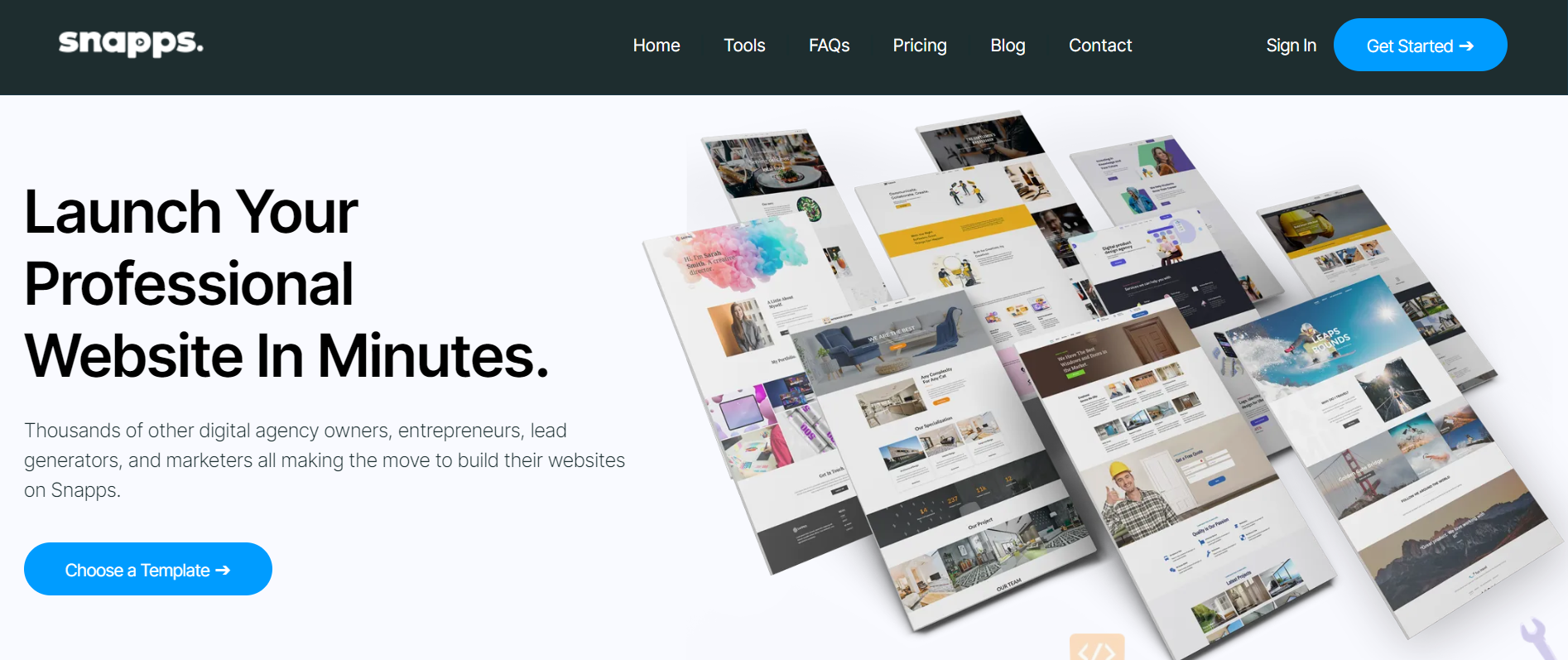
2. About Us Page
The About Us page offers a chance to tell the story of the business. It includes the history, mission, values, and the people behind the company. It helps build trust and connect with customers on a more personal level.

3. Products or Services Page
Products or Services page could be one page or a series of pages that detail what the business offers. Each product or service should have a clear, concise description. It should also include the pricing information and benefits of your products or services. You can also incorporate high-quality images or videos to enhance this page.
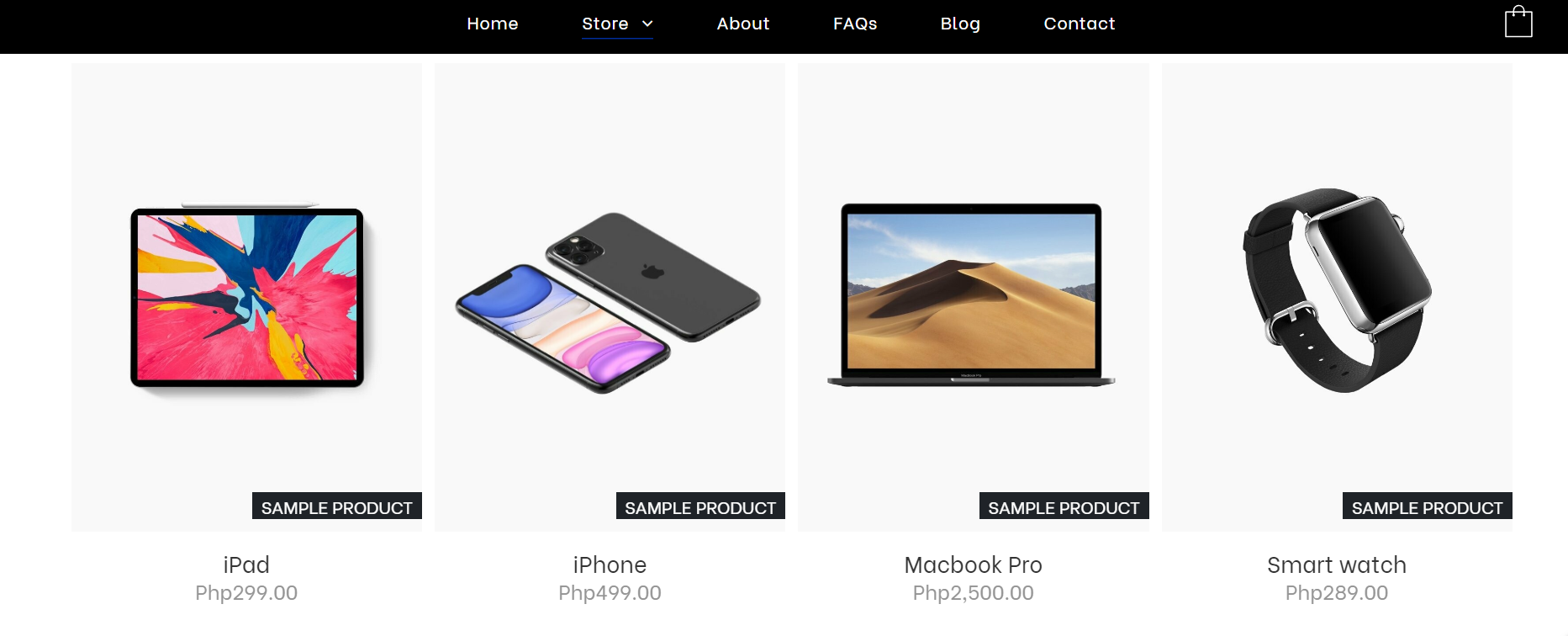
4. Contact Us Page
Contact Us page is essential for letting customers know how to reach the business. You can include multiple contact methods such as phone, email, and possibly a physical address. Also, an embedded map and a contact form can also be helpful.
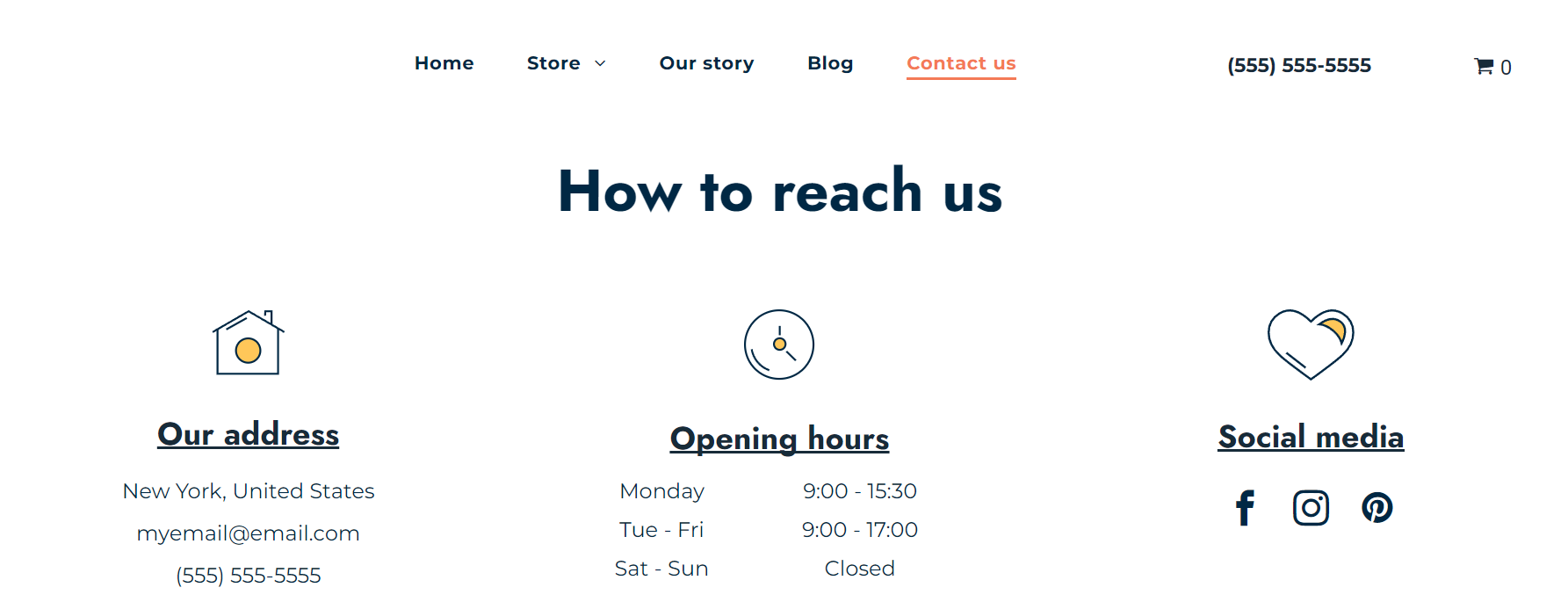
5. Testimonials or Reviews Page
Testimonials or Reviews page can significantly boost credibility. This page can serve as a powerful tool for potential customers to see the experiences of others.
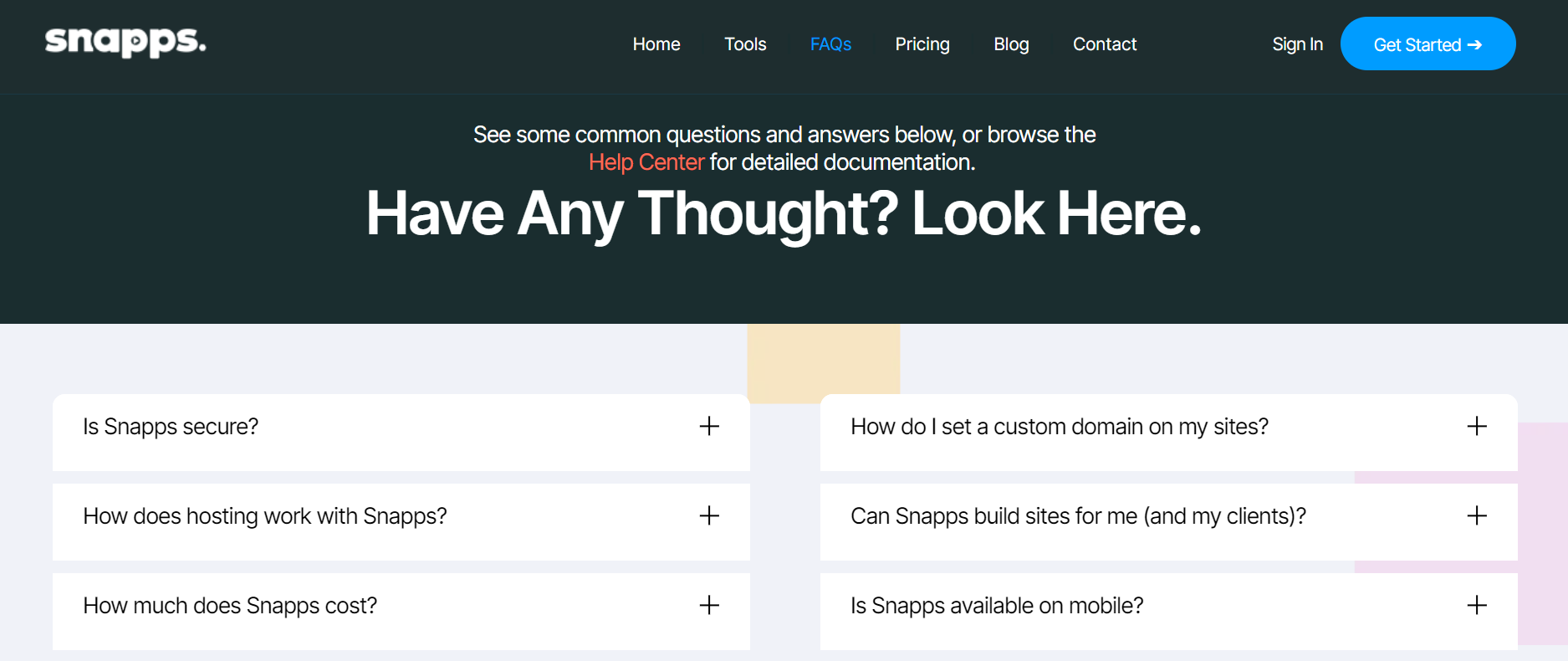
6. Blog or News Page
A Blog or News page can help keep content fresh and engage customers. This section can offer valuable insights, tips, company updates, and industry news that can help in SEO.
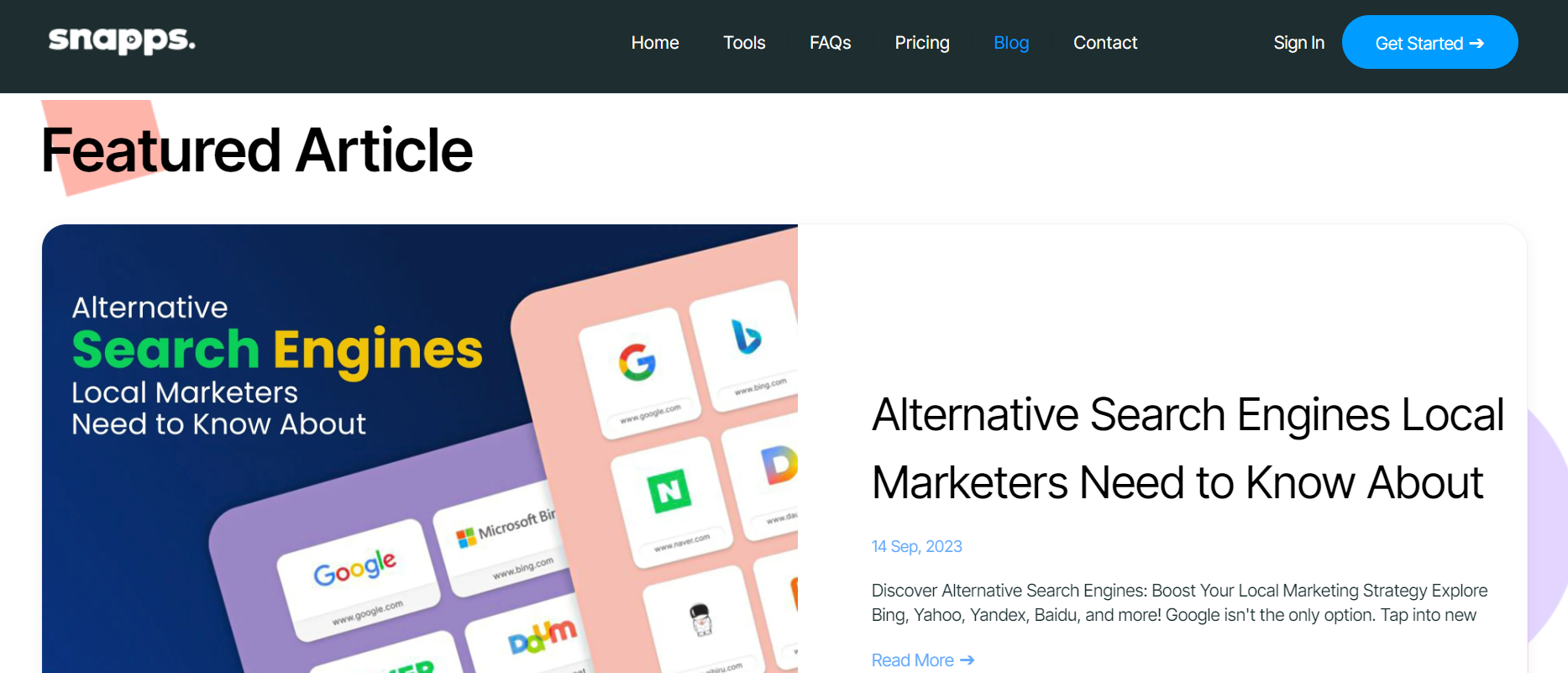
What is the Best Website Builder for a Small Business?
Snapps.ai is the best website builder for small businesses. It offers an intuitive drag-and-drop feature that helps a small business owner build a website easier and faster. It offers tools, customizable and aesthetic templates for seamless website creation. It also offers powerful features that simplify workflows and reduce errors.
Websites built with Snapps are optimized for Google Core Web Vitals, schema, and SEO best practices. It is also designed for lead generation users and agents. It offers lead generation templates that will help your small business generate leads and conversions. Snapps.ai websites also make finding local customers within your community easier.
It also offers functional tools like Snapps SEO and Snapps Copy AI. It will help you identify the most critical technical SEO issues of your website and get comprehensible reports easily. It also offers a powerful software that uses artificial intelligence to automatically generate content for your website.
According to Char Canty in his Quora.com comment, he would rate Snapps.ai on the higher end of the scale because of its ease of use. He highlights how anybody can use it. Plus, you can create professionally-looking websites.

Another review by Andrew says that he can publish so many sites quickly. He also mentioned how Snapps.ai optimizes photos automatically. For him, Snapps is the way of the future for building websites.
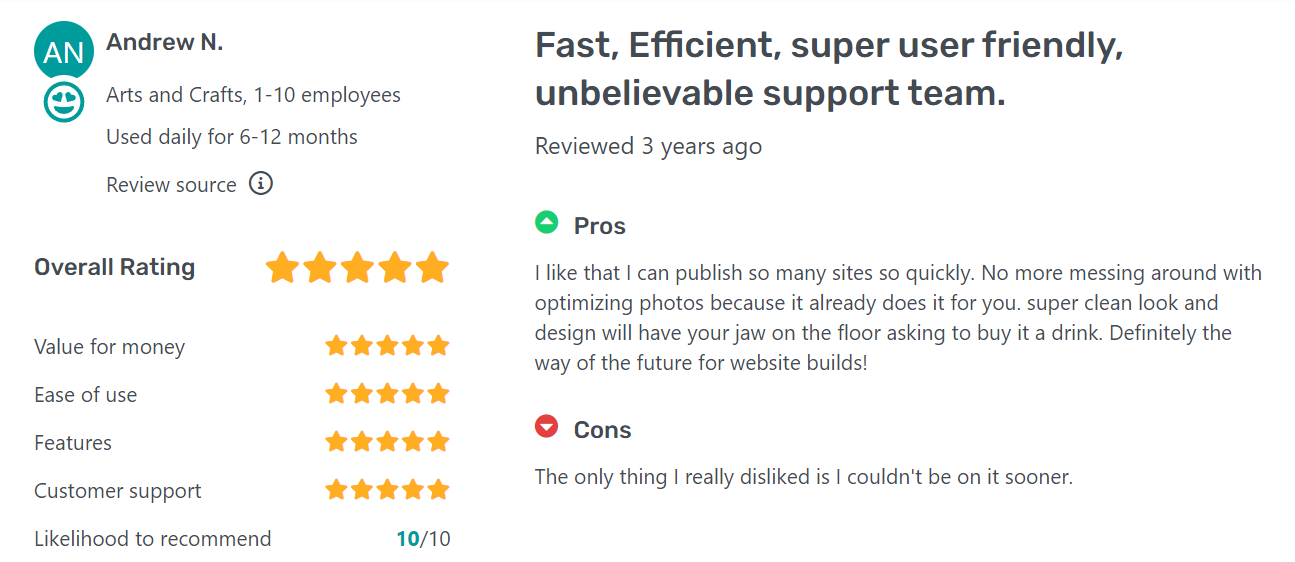
With Snapps.ai, you can enjoy efficient development, enhanced functionality, and a visually stunning online presence.
Final Verdict: Do Small Businesses Need a Website?
Yes, small businesses need a website. A website can help you take your business to another level. It improves lead generation, visibility, social proof, and authority. Without a website, you are missing a lot of online opportunities for your small business to grow.
Don’t miss any business opportunity! Try
Snapps.ai today to build a user-friendly and highly functional website for your small business.
Recent Articles



Ready? Try it for Free
Sign up now and build your pages the way you envisioned. No credit cards required.
Our Support Heroes Are Here For You
Don’t waste time on tedious manual tasks. Let Automation do it for you. Simplify workflows, reduce errors, and save time for solving more important problems.
